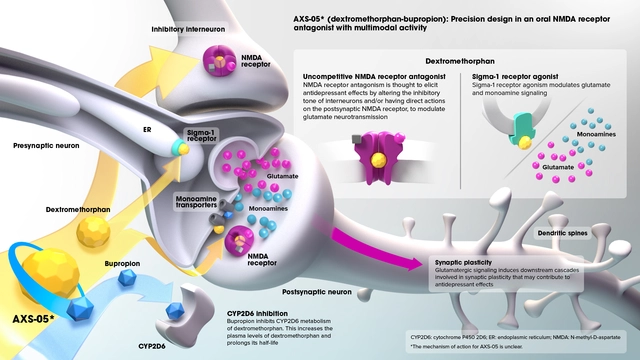Recognizing the Dangers of High Cholesterol
High cholesterol levels are a significant health risk that can lead to serious health problems, such as heart disease, stroke, and even death. It is crucial to understand the dangers of high cholesterol and take preventive measures to maintain a healthy lifestyle. In this section, we will discuss the risks associated with high cholesterol levels and the importance of regular check-ups and maintaining a healthy diet to prevent these health issues.
High cholesterol can lead to the build-up of plaque in your arteries, which can restrict blood flow and cause a heart attack or stroke. Moreover, high cholesterol levels can also cause peripheral artery disease (PAD), which affects the blood vessels in your legs and feet. It is essential to monitor your cholesterol levels regularly and take steps to maintain a healthy lifestyle to prevent these health risks.
Identifying the Symptoms of High Cholesterol
Unlike other health conditions, high cholesterol does not have specific symptoms that can be easily identified. However, there are certain signs and risk factors that may indicate a problem with your cholesterol levels. These risk factors include obesity, a sedentary lifestyle, a family history of high cholesterol or heart disease, smoking, and a diet high in saturated fats and cholesterol.
If you have any of these risk factors, it is essential to monitor your cholesterol levels regularly and take steps to maintain a healthy lifestyle. Additionally, it is crucial to be aware of the signs of heart disease, such as chest pain, shortness of breath, and fatigue, as these can be indicative of high cholesterol levels as well.
Understanding Good and Bad Cholesterol
Cholesterol is a waxy substance that is found in your blood and is essential for the proper functioning of your body. However, not all cholesterol is created equal. There are two types of cholesterol: low-density lipoprotein (LDL) and high-density lipoprotein (HDL). LDL cholesterol is often referred to as "bad" cholesterol, as it contributes to the build-up of plaque in your arteries. On the other hand, HDL cholesterol is known as "good" cholesterol, as it helps remove LDL cholesterol from your bloodstream.
It is essential to maintain a healthy balance of both LDL and HDL cholesterol to prevent the risks associated with high cholesterol levels. Regular exercise, a healthy diet, and maintaining a healthy weight can all help to improve your cholesterol balance and reduce your risk of heart disease and stroke.
Cholesterol Testing and Monitoring
Regular cholesterol testing is crucial in identifying and managing high cholesterol levels. Cholesterol tests, also known as lipid panels, measure your total cholesterol, LDL cholesterol, HDL cholesterol, and triglycerides. These tests can help your doctor determine your overall risk of heart disease and develop a treatment plan if necessary.
It is generally recommended that adults over the age of 20 should have their cholesterol levels checked at least once every five years. However, if you have a family history of high cholesterol or other risk factors, your doctor may recommend more frequent testing. It is essential to discuss your individual risk factors with your doctor and follow their recommendations for cholesterol testing and monitoring.
Maintaining a Heart-Healthy Diet
One of the most effective ways to lower your cholesterol levels and reduce your risk of heart disease is through a heart-healthy diet. This includes consuming a diet rich in fruits, vegetables, whole grains, lean proteins, and healthy fats, such as those found in nuts, seeds, and fish. Additionally, it is essential to limit your intake of saturated fats, trans fats, and cholesterol, which can contribute to high cholesterol levels and increased heart disease risk.
Some foods that can help lower your cholesterol levels include oatmeal, whole grains, nuts, and seeds, fatty fish such as salmon, mackerel, and sardines, and foods fortified with plant sterols and stanols, which can help block cholesterol absorption. Incorporating these foods into your diet can help lower your cholesterol levels and improve your overall heart health.
The Role of Exercise in Managing High Cholesterol
Regular exercise is another critical component in managing high cholesterol levels and reducing your risk of heart disease. Exercise can help raise your HDL cholesterol levels, lower your LDL cholesterol levels, and improve your overall cardiovascular health. The American Heart Association recommends at least 150 minutes of moderate-intensity aerobic exercise or 75 minutes of vigorous aerobic exercise per week.
Examples of moderate-intensity exercise include brisk walking, swimming, and cycling, while vigorous-intensity exercise includes running, jumping rope, and high-intensity interval training (HIIT). In addition to aerobic exercise, incorporating strength training and flexibility exercises into your routine can also help improve your overall health and well-being. It is essential to find an exercise routine that you enjoy and can maintain long-term to help manage your cholesterol levels and reduce your risk of heart disease.







I used to think cholesterol was just some fancy word doctors threw around to sell statins. Then I had my first lipid panel and realized my LDL was doing the cha-cha in my arteries. Changed my diet, started walking daily, and now my numbers are in the green. You don't need to be perfect-just consistent. Small wins add up.
This article is laughably oversimplified. You're telling people to eat 'fatty fish' like that's some magical cure? Have you seen the mercury levels in farmed salmon? And 'plant sterols'? That's a marketing ploy cooked up by Big Food to sell overpriced margarine! Real science says cholesterol is mostly genetic-and you're ignoring the real villain: insulin resistance!
In my country, we have a saying: 'The body is a temple, not a buffet.' I have seen too many young people in India, with perfect skin and bright eyes, collapse from heart attacks because they ate fried samosas every day and thought 'it's just cholesterol'-as if it were a polite suggestion, not a ticking time bomb. Exercise is not optional. Diet is not a trend. Your heart does not care how trendy your avocado toast is.
The data is unequivocal: elevated LDL is an independent risk factor for atherosclerotic cardiovascular disease. Lifestyle modifications remain the first-line intervention. However, for individuals with familial hypercholesterolemia or established CVD, pharmacological intervention is not only appropriate-it is life-saving. Please consult your physician before making any assumptions about your lipid profile.
HDL isn't always 'good.' Some genetic variants raise HDL but don't protect the heart. The real story is inflammation and particle size. But yeah, veggies and walking help. Simple.
bro i just ate a whole pizza last night and now i’m scared to check my blood work. also why do they call it 'bad' cholesterol like it’s a villain in a cartoon? it’s just… cholesterol. chill out.
I appreciate the emphasis on diet and exercise, but I wonder if we’re overlooking the psychological toll of obsessing over numbers. I had a friend who developed an eating disorder chasing 'perfect' cholesterol levels. Health isn’t just biomarkers-it’s peace of mind, too.
The article fails to address the systemic failure of the American healthcare system: 60% of adults don't have a primary care provider, and lipid panels cost $120 out-of-pocket. You can't 'just get tested' if you're working two jobs and can't afford a co-pay. This is a privilege conversation disguised as public health advice.
My grandma was 82 and never took a statin. She ate oatmeal every morning, walked to the store, and never ate processed junk. She had perfect cholesterol and danced at my wedding. You don't need a PhD to do this right. Just move more, eat real food, and stop listening to influencers.
ok so i read this article and i think the real issue is that they never mention that cholesterol is made by your liver so eating eggs doesnt even matter??? also why is everyone so scared of fat?? i eat butter like its my job and my triglycerides are lower than my coworkers. i think this whole thing is a scam by pharma.
I’ve coached 300+ clients through cholesterol changes. The #1 thing that works? Consistency over intensity. You don’t need to run marathons. Just move for 20 minutes daily. And swap soda for sparkling water. That one swap changed more lipids than any supplement I’ve ever seen.
In my village in Uttar Pradesh, we don't have cholesterol tests. But we know when someone is unwell-when they stop laughing, when their steps slow, when their eyes lose their shine. We feed them dal, spinach, and sunlight. We walk together. We don't need a lipid panel to know when the heart is heavy. Sometimes, the oldest wisdom is the truest.
Oh so now oatmeal is a miracle food? Funny how every decade the 'bad' food changes. First it was butter, then eggs, now it’s coconut oil. Next it’ll be the air you breathe. Meanwhile, the real issue? Sugar. Always sugar. But hey, let’s keep selling oatmeal.
This article is a product of institutionalized medical dogma. The lipid hypothesis has been debunked since the 1980s. Cholesterol is not the cause of atherosclerosis-it is a biomarker of repair. The real culprit? Endothelial damage from processed carbohydrates, oxidative stress, and government dietary guidelines. You are being manipulated by the medical-industrial complex.
I am so angry right now! Why do people keep saying 'just eat healthy' like it's easy? I work 14 hours a day in Lagos and my kids need food! Where am I supposed to find fresh fish? Organic oats? This article is for rich people who have time to think about their LDL! This is not health advice-it is a luxury!
What if cholesterol is a red herring? What if the real threat is glyphosate in our grains? Or 5G disrupting mitochondrial function? Or the government using cholesterol stats to justify mandatory statin programs to control the population? I’ve seen the documents. The FDA has been complicit. Don’t trust the lipid panel. Trust your intuition.
To the person who said 'it’s just cholesterol'-I get it. I used to think that too. But when my dad had his first heart attack at 52, and they found 90% blockage… I stopped laughing. You don’t have to be afraid. Just be aware. And maybe skip the double bacon cheeseburger tonight.